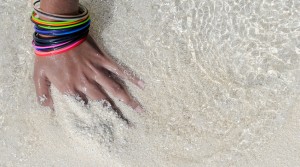Loving My Moleskines

There was a time (not so long ago) when I didn’t know these notebooks existed. But one day I was talking with my friend and she began raving about her Moleskine. I was intrigued. One purchase was all it took – I was in love, and I’ve been using them ever since. I’ve bought at least a dozen of them in various sizes and colors since that first introduction, experimenting with the way I use them in different facets of my life.
I love using Moleskines for a variety of reasons. They are beautiful to hold and use, and are the perfect combination of form and function. They’re also convenient, fitting easily into a purse or tote. And the design is both minimalist and brilliant.
In this age of everything digital, Moleskine has managed to keep writing not only relevant, but cool. Give them a try if you haven’t already.
How do you use your Moleskine?









